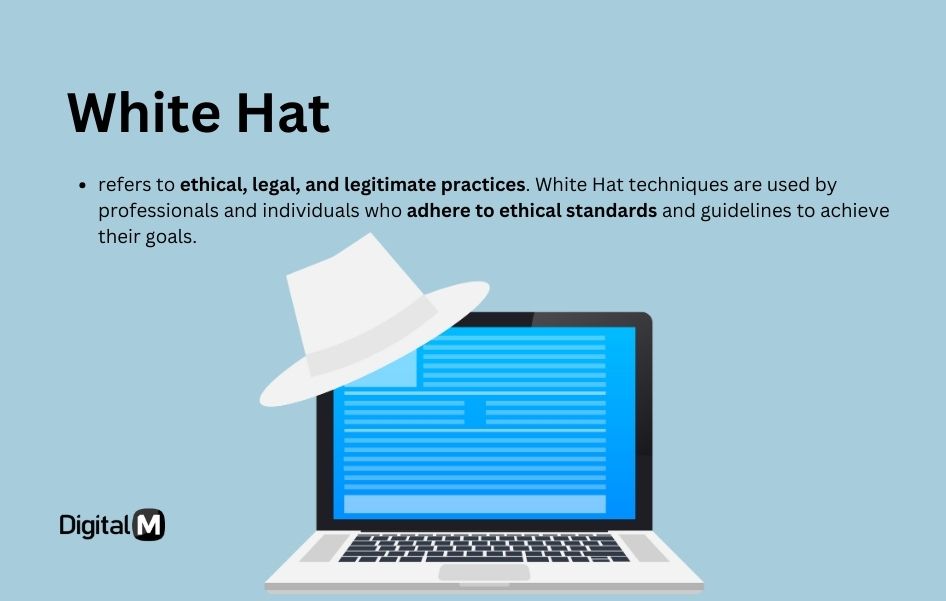White Hat
In the context of digital marketing and cybersecurity, “White Hat” refers to ethical, legal, and legitimate practices. White Hat techniques are used by professionals and individuals who adhere to ethical standards and guidelines to achieve their goals.
White Hat is like playing by the rules. It involves using ethical and legal methods to achieve a goal, whether it’s in marketing, SEO, or cybersecurity.

Key Points:
Ethical Practices: White Hat strategies prioritize ethical behavior, honesty, and compliance with rules and regulations.
Legal Compliance: White Hat approaches strictly adhere to laws and regulations governing a particular industry or activity.
Examples in Different Fields:
SEO (Search Engine Optimization): Using legitimate and approved methods to improve a website’s visibility on search engines, such as creating high-quality content, optimizing meta tags, and earning genuine backlinks.
Cybersecurity: Ethical hackers, also known as “White Hat Hackers,” use their skills to identify and fix security vulnerabilities in systems with the permission of the owner, helping to enhance overall security.
Marketing: In digital marketing, White Hat techniques involve creating valuable content, building genuine relationships, and following best practices in advertising and promotion.
Contrast with Black Hat:
The term “White Hat” is often contrasted with “Black Hat,” which refers to unethical or malicious practices. Black Hat SEO, for example, involves using deceptive methods to manipulate search engine rankings.
Benefits of White Hat Practices:
Long-Term Success: White Hat strategies are more likely to lead to sustainable success and positive outcomes over the long term.
Reputation Building: Adhering to ethical practices helps build a positive reputation for individuals and businesses.
White Hat SEO Practices:
Quality Content: Creating valuable and relevant content for users.
Keyword Optimization: Using keywords naturally and avoiding keyword stuffing.
Link Building: Earning high-quality backlinks through legitimate means.
User Experience: Focusing on providing a positive and user-friendly experience on the website.
Why it Matters:
Ethical Standards: White Hat practices contribute to the establishment and maintenance of ethical standards within industries.
Trust and Credibility: Businesses and individuals using White Hat methods are more likely to gain trust and credibility from users, customers, and peers.
In summary, White Hat refers to ethical, legal, and legitimate practices in various fields, including SEO, cybersecurity, and marketing. Adhering to White Hat principles involves following ethical standards and laws, contributing to long-term success, positive reputation building, and the establishment of trust within industries.

